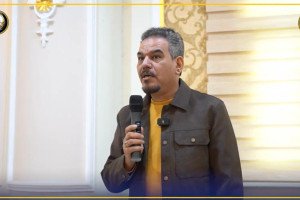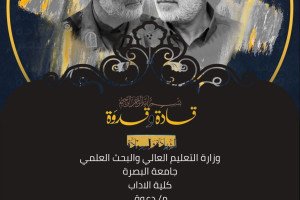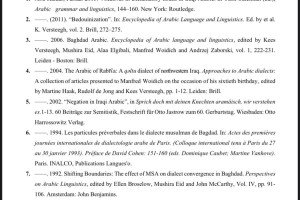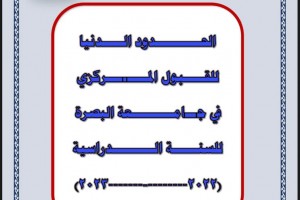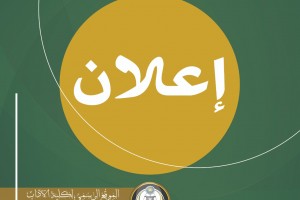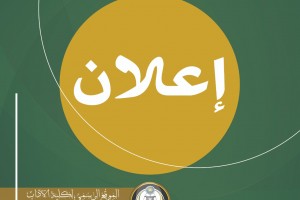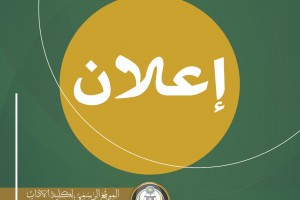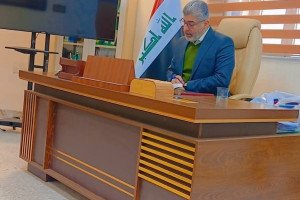





Under the patronage of Professor Dr. Majid Abdul Hamid Al Kaabi, Dean of the College of Arts, the guest of the Cultural Arts Forum is the great short story writer Muhammad Khudair, author of The Black Kingdom, At 45 Degrees Celsius, The Canon Notebook, and Basryatha, and author of The Swing story in the English language curriculum for the sixth preparatory year, in a lecture entitled “The Short Story and the Rituals of Translation.” In his introduction to the lecturer, Professor Dr. Kazim Khalaf Al-Ali said, “I will summarize my introduction to Professor Muhammad Khudair with what Professor Shuja’ Al-Ani, a former professor of criticism in the Department of Arabic Language at our college, said: ‘Muhammad Khudair has the eyes of a greyhound. As soon as he lets them loose in a street, they bring him something we do not see or care about.”Dr. Al-Ali continued, saying: On this basis, Muhammad Khudair today will present to us insights and insights about translation that we may not hear from academics, and this is the case with every unique writer, like the Argentine writer Borges, whose saying “the original is not faithful to translation” we must write in gold in translation departments.
The short story writer, Mohammed Khudair, began his talk by saying that he was thinking about the topic of the short story and translation and writing about it for the first time after Professor Dr. Kazim Al-Ali suggested the topic of the session to him.
- I became famous among Iraqi students because the Ministry of Education translated my short story (The Swing) and taught it as part of the English curriculum for the sixth grade of middle school for several years. I think that my fame among the youth of Iraq will remain for some time, even after the suspension of teaching the story to middle school students this year. In general, I see that the number of readers of my stories translated into foreign languages exceeds the number of readers of my stories in their original Arabic language, perhaps because I am a short story writer first and foremost, which makes me, in my place of residence, a local writer, belonging to the “obscure or marginal groups” according to the classification of Frank O’Connor, author of (The Solitary Voice).
But these two characteristics, marginality and sectarianism, will not help the short story writer to spread unless the translation of his stories into other languages saves him and attributes him to the world.
- I remember receiving a letter from the British translator Denys Johnson Davies in the early eighties of the last century, who was residing in Dubai at the time, in which he wanted to translate my story (Hours Like Horses) into English. I was surprised that there was someone interested in conveying the atmosphere of my stories to readers in a second language. Then I realized that there was a hidden reader, wearing the mask of a translator, lurking in the atmosphere of my stories, and sharing their events with me in order to invest them in constructing parallel texts. I understood then that the translation process in this sense falls within the concept that assumes the existence of an absent text behind the copy of the text complete with its elements and language that the original author had created. I supported this understanding with what Roman Jakobson saw in the process of linguistic communication, that it is a message that requires the presence of three pillars to complete it: the sender, the recipient, and the text or the communication channel between them.
- The translation of the book (Basryatha) was one of the fruits of the new wave in the translation of Arabic literature, which was presented by the American University in Cairo, along with translations of Naguib Mahfouz’s novels after he won the Nobel Prize in 1988.
The truth is that the interest in translating modern Arabic literature into foreign languages came to reward the first batch of novels that were translated at the beginning and middle of the last century, the most important of which were the novels of Gibran Khalil Gibran, Tawfiq al-Hakim, and Taha Hussein.
At the end of the session, which was marked by the great interaction of literary and cultural figures and undergraduate and postgraduate students of the College of Arts, a number of professors interacted with the short story writer Mohammed Khudair, including Professor Dr. Majid Al-Kaabi, Assistant Professor Dr. Hamed Al-Samar, Lecturer Dr. Adel Abdul-Jabbar, Professor Diaa Al-Asadi, writer Basem Al-Qatrani, and undergraduate and postgraduate students in the Translation Department.

